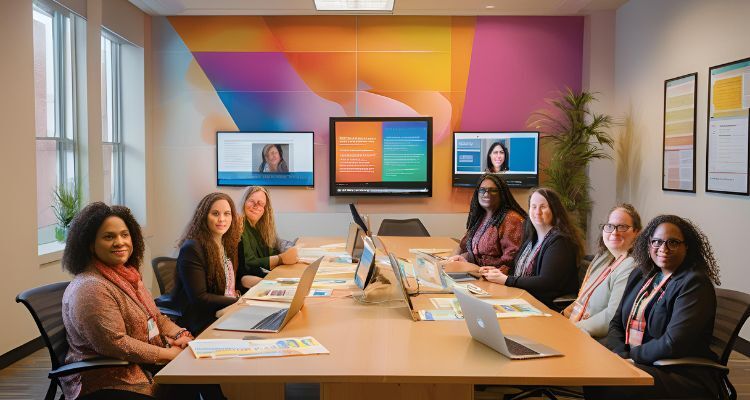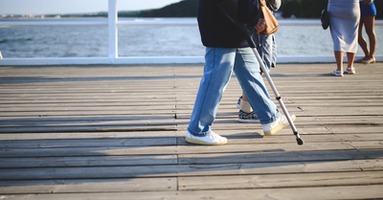
Disability Rights Education and Defense Fund (DREDF): Championing Disability Rights and Inclusion
The Disability Rights Education and Defense Fund (DREDF) is a pioneering civil rights organization dedicated to the advocacy, protection, and advancement of the rights of people with disabilities. Founded in 1979 and headquartered in Berkeley, California, DREDF has been at the forefront of the disability rights movement in the United States. With a comprehensive approach that includes legal advocacy, legislative development, and public education, DREDF has played a critical role in shaping disability rights policies and ensuring the full inclusion of people with disabilities in society.
Berkeley, known for its progressive movements, provided a fertile ground for the formation of DREDF. The founders, a group of parents, attorneys, and disability rights activists, recognized the necessity of a dedicated organization that could combine legal expertise with grassroots advocacy to challenge systemic discrimination. They sought to create a world where disability was not seen as a limitation but as a natural aspect of human diversity deserving of respect and inclusion.
The History and Foundation of DREDF
The Birth of the Disability Rights Movement
The Disability Rights Movement in the United States gained momentum in the 1960s and 1970s, paralleling other civil rights movements. The movement sought to challenge societal norms and policies that marginalized people with disabilities, advocating for their right to full participation in society. The roots of DREDF can be traced back to this era of activism and social change.
Founding of DREDF in 1979
DREDF was founded in 1979 by a group of parents of children with disabilities, along with disability rights advocates and attorneys. The founders recognized the need for a dedicated organization that would focus on legal advocacy and policy development to protect and advance the rights of people with disabilities. From its inception, DREDF has been committed to a cross-disability approach, addressing the needs and rights of people with all types of disabilities.
Early Achievements and Milestones
In its early years, DREDF quickly established itself as a key player in the disability rights movement. The organization played a significant role in the development of landmark disability rights legislation, including the Americans with Disabilities Act (ADA) and the Individuals with Disabilities Education Act (IDEA). These early achievements laid the foundation for DREDF's ongoing work in legal advocacy and policy development.
DREDF’s Mission and Core Values
Commitment to Disability Rights and Inclusion
DREDF's mission is to advance the civil and human rights of people with disabilities through legal advocacy, policy development, and public education. The organization is committed to ensuring that people with disabilities have the same rights and opportunities as everyone else, and that they are fully included in all aspects of society.
A Cross-Disability Approach
A core value of DREDF is its commitment to a cross-disability approach. This means that the organization advocates for the rights of people with all types of disabilities, regardless of the nature or severity of their disability. By addressing the needs and rights of people with a wide range of disabilities, DREDF works to ensure that all people with disabilities are included and supported.
Empowerment and Advocacy
DREDF believes in empowering people with disabilities to advocate for their own rights. The organization provides training, resources, and support to individuals with disabilities, helping them to become effective advocates for themselves and others. DREDF's advocacy efforts are guided by the principles of equality, justice, and full inclusion for all people with disabilities.
Key Areas of Focus
DREDF’s work is broadly categorized into three key areas: legal advocacy, legislative development, and education and training. Each of these areas is crucial in advancing the rights of people with disabilities and ensuring that their needs are met in a comprehensive and meaningful way.
Legal Advocacy
Legal advocacy is at the core of DREDF’s efforts. The organization provides legal representation to individuals with disabilities, challenging discriminatory practices and ensuring that disability rights are upheld in the courts. This involves both individual cases and broader class-action lawsuits that seek to address systemic issues affecting the disability community.
Legislative Development
DREDF has played a pivotal role in the development of landmark disability rights legislation, including the Americans with Disabilities Act (ADA) and the Individuals with Disabilities Education Act (IDEA). The organization works closely with lawmakers, providing expertise and advocacy to shape policies that protect and promote the rights of people with disabilities.
Education and Training
Education and training are essential components of DREDF’s strategy to empower individuals and communities. The organization offers training programs for legal professionals, advocates, and policymakers, equipping them with the knowledge and tools needed to advance disability rights. Additionally, DREDF engages in public education to raise awareness about disability rights and foster a culture of inclusion.
Landmark Achievements in Disability Rights
DREDF has been instrumental in the development and implementation of major disability rights legislation. These laws have had a profound impact on the lives of millions of people with disabilities, ensuring their right to participate fully in society.
The Americans with Disabilities Act (ADA)
The ADA, signed into law in 1990, is one of the most significant achievements in the history of disability rights. DREDF played a key role in the drafting and advocacy process that led to the passage of this groundbreaking legislation. The ADA prohibits discrimination against individuals with disabilities in all areas of public life, including employment, education, transportation, and public accommodations.
The ADA's impact has been far-reaching, leading to the removal of physical barriers in public spaces, the implementation of reasonable accommodations in the workplace, and the establishment of accessible public transportation systems. DREDF continues to work on ensuring the proper enforcement of the ADA and addressing emerging challenges related to its implementation.
The Individuals with Disabilities Education Act (IDEA)
Another significant piece of legislation that DREDF has been involved with is the Individuals with Disabilities Education Act (IDEA). This law guarantees that children with disabilities have the right to a free and appropriate public education in the least restrictive environment. IDEA has transformed the educational landscape, ensuring that students with disabilities receive the support they need to succeed academically.
DREDF's advocacy has been crucial in shaping the provisions of IDEA, particularly in areas related to individualized education plans (IEPs), inclusion in mainstream classrooms, and the protection of students' rights. The organization's ongoing work in this area ensures that IDEA continues to serve as a robust framework for educational equity.
Section 504 of the Rehabilitation Act
Section 504 of the Rehabilitation Act of 1973 was one of the first federal civil rights laws to protect individuals with disabilities from discrimination. DREDF has been a strong advocate for the enforcement of Section 504, which prohibits discrimination on the basis of disability in programs and activities that receive federal financial assistance. This law laid the groundwork for subsequent disability rights legislation, including the ADA.
DREDF's efforts have helped to ensure that Section 504 is applied consistently and effectively across various sectors, including education, healthcare, and public services. The organization provides legal support to individuals seeking to enforce their rights under this law, contributing to its broader impact on disability rights.
Legal Advocacy and Landmark Cases
The Role of Legal Advocacy in Disability Rights
Legal advocacy is a cornerstone of DREDF's work. The organization provides legal representation and support to individuals with disabilities who are facing discrimination or barriers to full participation in society. DREDF's legal advocacy efforts have been instrumental in advancing disability rights and ensuring that people with disabilities are treated fairly and equitably under the law.
Landmark Cases and Legal Victories
DREDF has been involved in numerous landmark legal cases that have had a profound impact on disability rights in the United States. Some of these cases have set important legal precedents and have helped to clarify and expand the rights of people with disabilities. These legal victories have had a lasting impact on the disability community and have helped to shape the legal landscape for disability rights.
Southeastern Community College v. Davis (1979)
One of DREDF's early involvements in a landmark case was in Southeastern Community College v. Davis. The case revolved around a nursing program applicant with a hearing impairment who was denied admission based on her disability. The Supreme Court ruling ultimately decided that the nursing program did not have to modify its curriculum to accommodate her. Although the ruling was not in favor of the applicant, the case underscored the necessity for clear legal standards in disability rights, influencing subsequent legislation.
Olmstead v. L.C. (1999)
DREDF played a pivotal role in the Olmstead v. L.C. case, which resulted in a landmark Supreme Court decision. The ruling held that unnecessary institutionalization of people with disabilities is a form of discrimination under the ADA. This case significantly advanced the rights of people with disabilities to live in community-based settings rather than being segregated in institutions, promoting greater independence and inclusion.
National Federation of the Blind v. Target Corporation (2006)
DREDF also supported the National Federation of the Blind in its lawsuit against Target Corporation. The case, which centered on the accessibility of Target's website for blind users, resulted in a settlement that required Target to make its website accessible to people with disabilities. This case set a critical precedent for digital accessibility, reinforcing the idea that the ADA applies to online spaces.
Impact of Legal Advocacy on Disability Rights
The legal advocacy work of DREDF has had a transformative impact on the lives of people with disabilities. By challenging discriminatory practices and advocating for the enforcement of disability rights laws, DREDF has helped to break down barriers and create a more inclusive society. The organization's legal victories have not only benefited the individuals involved in the cases but have also set important precedents that have advanced disability rights for all.
Legislative Advocacy and Policy Development
Influencing Disability Rights Legislation
In addition to its legal advocacy work, DREDF is deeply involved in legislative advocacy and policy development. The organization works to influence the development and implementation of laws and policies that protect and advance the rights of people with disabilities. DREDF's legislative advocacy efforts have been instrumental in the passage of major disability rights legislation, including the ADA and IDEA.
The Americans with Disabilities Act (ADA)
DREDF played a crucial role in the development and passage of the Americans with Disabilities Act (ADA). The ADA is one of the most comprehensive pieces of civil rights legislation in U.S. history, prohibiting discrimination against people with disabilities in all areas of public life, including employment, education, transportation, and public accommodations. DREDF's advocacy efforts were key in shaping the ADA and ensuring that it provides robust protections for people with disabilities.
The Passage of the ADA
The passage of the ADA in 1990 was a historic moment in the disability rights movement. DREDF was actively involved in the drafting and advocacy process, working closely with legislators, disability rights advocates, and other stakeholders to ensure that the ADA would provide strong and comprehensive protections for people with disabilities. The organization's work was instrumental in the successful passage of the ADA and its subsequent implementation.
ADA Amendments Act of 2008
DREDF also played a significant role in the advocacy efforts leading to the passage of the ADA Amendments Act of 2008. The amendments were necessary to address several Supreme Court decisions that had narrowly interpreted the ADA's definition of disability, limiting the law's protections. The ADA Amendments Act restored the original intent of the ADA, ensuring broader coverage for people with disabilities.
The Individuals with Disabilities Education Act (IDEA)
Another major area of legislative advocacy for DREDF is the Individuals with Disabilities Education Act (IDEA). IDEA is a federal law that ensures students with disabilities have access to a free appropriate public education (FAPE) in the least restrictive environment. DREDF has been a strong advocate for IDEA, working to ensure that students with disabilities receive the educational services and supports they need to succeed.
The Role of DREDF in IDEA
DREDF has been involved in the development and implementation of IDEA since its inception. The organization has worked to ensure that the law is effectively implemented and that students with disabilities receive the full range of services and supports to which they are entitled. DREDF provides training and resources to parents, educators, and advocates to help them navigate the special education system and advocate for the rights of students with disabilities.
Advocating for Stronger Protections Under IDEA
DREDF continues to advocate for stronger protections and greater resources for students with disabilities under IDEA. The organization is committed to ensuring that all students with disabilities have access to a quality education that meets their individual needs and prepares them for success in life. DREDF's advocacy efforts have been instrumental in shaping IDEA and ensuring that it provides robust protections for students with disabilities.
Other Legislative Efforts
In addition to its work on the ADA and IDEA, DREDF is involved in a wide range of other legislative advocacy efforts. The organization advocates for policies that promote accessibility, independence, and inclusion for people with disabilities. This includes advocating for accessible transportation, healthcare, housing, and voting rights. DREDF's legislative advocacy efforts are guided by its commitment to ensuring that people with disabilities have the same rights and opportunities as everyone else.
Education and Training: Empowering Advocates and Policymakers
Education and training are essential components of DREDF's mission. The organization provides a wide range of educational programs and resources designed to empower advocates, policymakers, and the disability community.
Training Programs for Legal Professionals
DREDF offers specialized training programs for legal professionals, equipping them with the knowledge and skills needed to effectively advocate for disability rights. These programs cover a range of topics, including disability law, accessibility standards, and strategies for effective litigation. By training the next generation of disability rights lawyers, DREDF ensures that the legal profession is well-equipped to continue the fight for equality.
Educational Outreach to the Disability Community
In addition to training legal professionals, DREDF engages in educational outreach to the disability community. The organization provides workshops, seminars, and resources designed to inform individuals with disabilities about their rights and how to advocate for themselves. This educational outreach empowers people with disabilities to take an active role in advancing their own rights and the rights of others.
Technical Assistance and Resources
DREDF also offers technical assistance and resources to organizations, businesses, and government agencies seeking to comply with disability rights laws. This assistance includes guidance on implementing accessibility standards, developing inclusive policies, and addressing specific legal issues related to disability rights. By providing this support, DREDF helps to create more inclusive environments for people with disabilities.
DREDF’s Role in Public Policy and Advocacy
DREDF's work extends beyond legal advocacy and legislative development to include a strong focus on public policy and advocacy. The organization works to influence national and local policies that impact the lives of people with disabilities.
Influencing National and Local Policies
DREDF is actively involved in shaping national and local policies related to disability rights. The organization engages in advocacy efforts aimed at influencing the development and implementation of policies that promote accessibility, inclusion, and equal opportunity for people with disabilities. This includes working on issues such as healthcare access, education, and transportation.
Collaborations with Other Advocacy Organizations
DREDF collaborates with other advocacy organizations to amplify its impact and achieve common goals. These partnerships allow DREDF to leverage the expertise and resources of other organizations, creating a stronger and more coordinated effort to advance disability rights. Through these collaborations, DREDF is able to address a broader range of issues and reach a larger audience.
DREDF’s Impact on Public Spaces and Transportation Accessibility
One of the key areas where DREDF has made a significant impact is in the accessibility of public spaces and transportation systems. The organization has been a leading advocate for the creation of inclusive environments that accommodate the needs of people with disabilities.
Advocacy for Inclusive Infrastructure
DREDF has been at the forefront of advocating for inclusive infrastructure in public spaces. This includes ensuring that buildings, sidewalks, parks, and other public areas are accessible to individuals with disabilities. The organization's advocacy efforts have led to the implementation of accessibility standards that make public spaces more navigable and usable for everyone.
Success Stories in Urban Planning and Public Transit
DREDF's advocacy has also extended to urban planning and public transit. The organization has worked with city planners, transportation agencies, and policymakers to ensure that public transit systems are accessible to people with disabilities. This includes advocating for the installation of ramps, elevators, and other accessibility features in transit stations, as well as ensuring that buses, trains, and other forms of public transportation are equipped to accommodate passengers with disabilities.
Legal Representation: How DREDF Supports Individuals
While much of DREDF's work focuses on systemic advocacy, the organization also provides direct legal representation to individuals with disabilities. This legal support is crucial in helping people with disabilities assert their rights and challenge discriminatory practices.
Providing Legal Aid to People with Disabilities
DREDF offers legal aid to individuals who are facing discrimination or other legal challenges related to their disability. This support includes representation in court, assistance with filing complaints, and guidance on navigating the legal system. By providing this legal aid, DREDF helps individuals with disabilities to achieve justice and secure the rights to which they are entitled.
Success Stories of Individual Representation
DREDF has successfully represented numerous individuals in cases that have had a lasting impact on disability rights. For example, the organization represented a student with a learning disability who was being denied appropriate accommodations in school. The case resulted in a settlement that ensured the student received the necessary support and set a precedent for similar cases in the future.
DREDF’s Training Programs: Building a Future of Informed Advocacy
DREDF's training programs are designed to build a future where informed advocacy is the norm. These programs equip advocates, lawyers, and community members with the knowledge and skills they need to effectively advance disability rights.
Training for Advocates and Lawyers
DREDF's training programs for advocates and lawyers cover a wide range of topics related to disability rights. Participants learn about the legal frameworks that protect the rights of people with disabilities, as well as strategies for effective advocacy and litigation. These programs are an essential part of DREDF's efforts to build a strong and informed disability rights movement.
Impact on Future Generations of Disability Rights Advocates
Through its training programs, DREDF is helping to cultivate the next generation of disability rights advocates. The knowledge and skills gained through these programs enable participants to take on leadership roles in the disability rights movement and make a meaningful impact in their communities.
The Importance of Intersectionality in DREDF’s Work
DREDF recognizes the importance of intersectionality in its work. The organization understands that individuals with disabilities often face multiple forms of discrimination based on factors such as race, gender, and socioeconomic status.
Addressing Multiple Marginalized Identities
DREDF's advocacy takes into account the experiences of individuals with multiple marginalized identities. The organization works to ensure that its advocacy efforts address the unique challenges faced by people with disabilities who also belong to other marginalized groups. This intersectional approach is essential in promoting comprehensive equality and justice.
Advocating for Comprehensive Equality
DREDF's commitment to intersectionality is reflected in its advocacy for comprehensive equality. The organization seeks to eliminate all forms of discrimination and ensure that everyone, regardless of their identity, has access to the same rights and opportunities. This holistic approach to advocacy is a key part of DREDF's mission to create a more just and inclusive society.
Challenges Faced by DREDF in the Fight for Disability Rights
Despite its many successes, DREDF faces a number of challenges in its work to advance disability rights. These challenges include legal and political obstacles, as well as issues related to public perception and awareness.
Legal and Political Obstacles
One of the primary challenges faced by DREDF is the legal and political landscape in which it operates. The organization often encounters resistance from entities that are reluctant to comply with disability rights laws or that seek to weaken these protections. DREDF must navigate complex legal and political environments to achieve its goals, often requiring persistence and creative strategies.
Public Perception and Awareness
Another challenge faced by DREDF is the public's perception and awareness of disability rights. Despite progress in this area, there is still a lack of understanding about the rights of people with disabilities and the importance of accessibility and inclusion. DREDF works to raise awareness and change public attitudes, but this remains an ongoing challenge.
DREDF’s Vision for the Future
Looking to the future, DREDF remains committed to advancing disability rights and ensuring that people with disabilities are fully included in all aspects of society. The organization has a vision for a future where disability rights are recognized as human rights and where barriers to inclusion are eliminated.
Emerging Issues in Disability Rights
As the disability rights movement continues to evolve, DREDF is focused on addressing emerging issues that impact the lives of people with disabilities. This includes advocating for digital accessibility, addressing the needs of aging populations, and ensuring that new technologies are accessible to all.
Expanding Impact Globally
While DREDF's work has primarily focused on the United States, the organization is also looking to expand its impact globally. By collaborating with international disability rights organizations and sharing its expertise, DREDF aims to contribute to the global disability rights movement and help advance the rights of people with disabilities around the world.
How to Support DREDF’s Mission
There are several ways that individuals and organizations can support DREDF's mission and contribute to the advancement of disability rights.
Donating to DREDF
One of the most direct ways to support DREDF is by making a donation. Financial contributions help the organization continue its vital work in legal advocacy, legislative development, and education. Donations can be made through DREDF's website, and every contribution, no matter the size, makes a difference.
Volunteering and Advocacy
In addition to financial support, individuals can get involved with DREDF by volunteering or participating in advocacy efforts. This might include assisting with legal research, helping to organize events, or advocating for disability rights in your community. DREDF welcomes volunteers who are passionate about advancing disability rights and making a positive impact.
Spreading Awareness
Another important way to support DREDF is by spreading awareness about disability rights and the organization's work. This can be done by sharing information on social media, talking to friends and family about disability rights issues, or hosting awareness-raising events. The more people are informed about disability rights, the stronger the movement becomes.
Success Stories: Real-Life Impact of DREDF’s Work
DREDF's work has had a profound impact on the lives of countless individuals. Here are some real-life success stories that illustrate the difference the organization has made.
Personal Testimonies from Beneficiaries
One beneficiary, a woman with a physical disability, was able to secure accessible housing thanks to DREDF's legal assistance. She had been struggling to find a home that met her needs, but with DREDF's help, she was able to advocate for her rights and obtain the accommodations she needed.
Another success story involves a group of parents who were able to secure appropriate educational services for their children with disabilities. DREDF provided the legal support necessary to ensure that the school district complied with IDEA, resulting in better educational outcomes for the children involved.
Long-Term Impact on Communities
DREDF's impact extends beyond individual cases to entire communities. For example, the organization's advocacy for accessible public transportation has made it easier for people with disabilities to travel to work, school, and other essential destinations. This has had a ripple effect, improving the quality of life for people with disabilities and fostering greater inclusion in society.
DREDF’s Partnerships and Collaborations
Partnerships and collaborations are a key part of DREDF's strategy for advancing disability rights. The organization works with a wide range of partners to achieve its goals and amplify its impact.
Working with Other Disability Advocacy Organizations
DREDF collaborates with other disability advocacy organizations to address common challenges and pursue shared goals. These partnerships allow DREDF to combine its strengths with those of other organizations, creating a more powerful and effective movement for disability rights.
Corporate and Community Partnerships
In addition to working with disabled advocacy groups and organizations, DREDF also partners with corporations and community groups. These partnerships help to raise awareness about disability rights and promote inclusive practices in the workplace and beyond. By working together, DREDF and its partners are able to make a greater impact and create lasting change.
The Role of Technology in Advancing Disability Rights
Technology plays an increasingly important role in advancing disability rights, and DREDF is actively involved in promoting accessible tech solutions.
DREDF’s Use of Technology for Advocacy
DREDF uses technology in a variety of ways to support its advocacy efforts. This includes using digital platforms to raise awareness, providing online resources for advocates and individuals with disabilities, and leveraging technology to improve accessibility in public spaces and services.
Promoting Accessible Tech Solutions
DREDF also advocates for the development and adoption of accessible technology solutions. This includes working with tech companies to ensure that their products and services are accessible to people with disabilities, as well as advocating for policies that promote digital accessibility. By focusing on accessible technology, DREDF is helping to ensure that people with disabilities can fully participate in the digital age.
Addressing the Global Disability Rights Movement
While DREDF's primary focus has been on the United States, the organization is increasingly involved in the global disability rights movement.
DREDF’s Influence Beyond the United States
DREDF's expertise and advocacy have had an impact beyond U.S. borders. The organization has shared its knowledge and resources with disability rights advocates in other countries, helping to advance the global movement for disability rights.
Global Collaboration and Advocacy
DREDF collaborates with international organizations to address global disability rights issues. These collaborations include sharing best practices, providing technical assistance, and participating in international advocacy efforts. Through these global partnerships, DREDF is helping to promote disability rights on a worldwide scale.
DREDF’s Media Presence and Public Awareness Campaigns
Media presence and public awareness campaigns are essential tools in DREDF's efforts to advance disability rights.
Utilizing Media to Raise Awareness
DREDF uses various media platforms to raise awareness about disability rights and the issues faced by people with disabilities. This includes social media campaigns, public service announcements, and collaborations with media outlets. By utilizing media, DREDF is able to reach a wide audience and promote greater understanding of disability rights.
Campaigns That Have Made a Difference
Over the years, DREDF has launched several public awareness campaigns that have had a significant impact. These campaigns have helped to change public attitudes towards disability, increase awareness of disability rights laws, and promote inclusion in all areas of society.
The Importance of Disability Rights Education
Education is a critical component of DREDF's mission, and the organization is dedicated to educating the public about disability rights.
Educating the Public on Disability Rights
DREDF engages in public education efforts to inform people about their rights under disability laws and the importance of accessibility and inclusion. This education takes many forms, including workshops, seminars, and informational materials. By educating the public, DREDF is helping to create a more informed and supportive society.
The Role of Schools and Universities
Schools and universities also play a key role in disability rights education. DREDF works with educational institutions to promote disability rights education and ensure that students with disabilities have access to the resources and support they need. This includes advocating for inclusive policies, providing training for educators, and supporting students in their academic pursuits.
Legal Resources and Publications by DREDF
DREDF provides a wealth of legal resources and publications that are essential tools for advocates, policymakers, and individuals with disabilities.
Guides and Manuals for Advocates
DREDF has developed a range of guides and manuals that provide practical information on disability rights laws and advocacy strategies. These resources are widely used by advocates and legal professionals to advance disability rights and ensure compliance with legal standards.
Legal Research and Publications
In addition to practical guides, DREDF also produces legal research and publications that contribute to the broader understanding of disability rights issues. These publications include academic articles, policy briefs, and reports that explore key topics in disability law and advocacy.
The Importance of Accessible Healthcare
Healthcare is a critical area where DREDF has focused its advocacy efforts, ensuring that people with disabilities have access to the care they need.
DREDF’s Work in Healthcare Advocacy
DREDF has been a strong advocate for accessible healthcare, working to ensure that people with disabilities receive the same quality of care as everyone else. This includes advocating for accessible medical facilities, training for healthcare providers on disability issues, and policies that promote inclusive healthcare practices.
Success Stories in Healthcare Access
DREDF's healthcare advocacy has led to significant improvements in access to care for people with disabilities. For example, the organization successfully advocated for changes to a hospital's policies, ensuring that patients with disabilities received the accommodations they needed. This work has had a lasting impact, improving the healthcare experience for countless individuals.
The Disability Rights Education and Defense Fund (DREDF) has been a driving force in the disability rights movement for over four decades. Through its work in legal advocacy, legislative development, and education, DREDF has made significant strides in advancing the rights of people with disabilities and creating a more inclusive society. The organization's impact is evident in the laws it has helped to shape, the individuals it has supported, and the broader changes it has influenced in public policy and societal attitudes.
As DREDF looks to the future, it remains committed to its mission of ensuring that people with disabilities have equal access to all aspects of life. The challenges ahead are significant, but with continued advocacy, education, and collaboration, DREDF will continue to be a powerful advocate for disability rights, both in the United States and around the world.
Whether through donating, volunteering, or spreading awareness, there are many ways to support DREDF's important work. By joining forces with this vital organization, we can all contribute to the ongoing fight for disability rights and help create a world where everyone, regardless of ability, can thrive.
.png)





